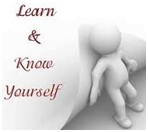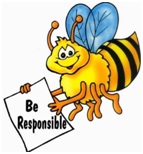|
 |
|
 |
|
|
||
Socrates - Philosophy and Happiness
Socrates (470-399 BC)
Greek philosopher (pictured right) who challenged people to improve themselves. Some of them hated this (particularly politicians), and he was charged with;
Found guilty and sentenced to death, he poisoned himself by drinking hemlock. He never wrote anything down and most of our knowledge about him comes from another great Greek philosopher, Plato, his student (pictured right).
For more detail see... The Trial and Death of Socrates in the History Highlights section.
His tips for a happy life
1. Purpose and integrity a) question your knowledge and wisdom Socrates had one great aim: to question people to make them aware of:
So know yourself (see point 2), and welcome people challenging you (see point 4).
b) do what's right Have the courage to do what you think is right, not what anybody else tells you Virtue makes you happy, and no one does wrong willingly, only out of ignorance.
c) keep your integrity Live by the truth and moral values (particularly love - see point 7)
2. Know yourself (self-knowledge) Examine yourself and honestly list your strengths and weaknesses, so that you can:
“The unexamined life is not worth living”, Socrates said. He would have loved the question: If you met a Martian, how would you describe yourself?
3. Never stop learning Knowledge is the only way to a happy life. So
“I know that I know nothing”, Socrates said. 4. Question everything He loved walking the streets of Athens to:
Such questioning forces you to fully understand words you might take for granted. For example, courage might involve obstinacy (which is bad), as well as the virtues of persistence and determination. So:
5. Think Think about yourself and the right way to live. Socrates once stood motionless for 24 hours thinking and saw himself as a gadfly making lazy people think about themselves and their lives.
6. Sort out your problems now Although it's painful, you must:
7. Love
8. Be good and wise, not rich and beautiful Happiness comes from:
a) virtue and knowledge of what's good Socrates controversially believed that you don't do wrong willingly but out of ignorance (i.e. you do wrong because you don't know that it's wrong). b) worthwhile work He taught people for free, because he wanted them to learn about themselves.
c) the soul (not money) Your soul is the most important thing in your life. So goodness is much more important than wealth and looks. Socrates was ugly, wore old clothes and lived on little money (because he had the self-control to avoid unnecessary spending). “Virtue springs not from possessions, but from virtue springs possessions and all other human blessings”, he said.
9. Have fun He was liked because of his charm and great sense of humour.
10. Trust yourself You have the power to change your life. So:
Key quotes on peace of mind To find yourself, think for yourself. Having the fewest wants, I am nearest to the gods.
Key quotes on success The unexamined life is not worth living. Know thyself.
Key quote on learning and wisdom I know that I know nothing.
Key quote on money Virtue springs not from possessions, but from virtue springs possessions and all other human blessings.
Key quote on communication False words are not only evil in themselves, but they infect the soul with evil.
Key quote on education Education is the kindling of a flame, not the filling of a vessel.
Key quote on the learning organization A man, though wise, should never be ashamed of learning more.
Key quote on ethics No evil can happen to a good man, either in life or after death.
Key quote on time management Beware the barrenness of a busy life.
Key quote on love From the deepest desires often come the deadliest hate.
Key quote on health Eat to live, not live to eat. |
|
|
||
|
|
||
| Copyright © wisdomtowin.com 2025 All Rights Reserved | ||
|















